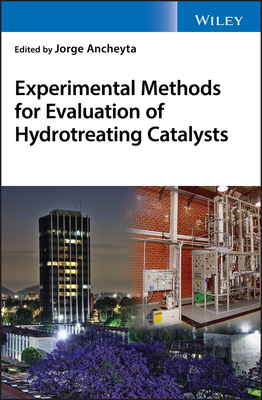Machine Learning and Flow Assurance in Oil and Gas Production
Lal, Bhajan, Bavoh, Cornelius Borecho, Sahith Sayani, Jai Krishna
- 出版商: Springer
- 出版日期: 2024-03-13
- 售價: $7,310
- 貴賓價: 9.5 折 $6,945
- 語言: 英文
- 頁數: 177
- 裝訂: Quality Paper - also called trade paper
- ISBN: 3031242335
- ISBN-13: 9783031242335
-
相關分類:
Machine Learning
海外代購書籍(需單獨結帳)
相關主題
商品描述
This book is useful to flow assurance engineers, students, and industries who wish to be flow assurance authorities in the twenty-first-century oil and gas industry.
The use of digital or artificial intelligence methods in flow assurance has increased recently to achieve fast results without any thorough training effectively. Generally, flow assurance covers all risks associated with maintaining the flow of oil and gas during any stage in the petroleum industry. Flow assurance in the oil and gas industry covers the anticipation, limitation, and/or prevention of hydrates, wax, asphaltenes, scale, and corrosion during operation. Flow assurance challenges mostly lead to stoppage of production or plugs, damage to pipelines or production facilities, economic losses, and in severe cases blowouts and loss of human lives. A combination of several chemical and non-chemical techniques is mostly used to prevent flow assurance issues in the industry. However, the use of models to anticipate, limit, and/or prevent flow assurance problems is recommended as the best and most suitable practice. The existing proposed flow assurance models on hydrates, wax, asphaltenes, scale, and corrosion management are challenged with accuracy and precision. They are not also limited by several parametric assumptions. Recently, machine learning methods have gained much attention as best practices for predicting flow assurance issues. Examples of these machine learning models include conventional approaches such as artificial neural network, support vector machine (SVM), least square support vector machine (LSSVM), random forest (RF), and hybrid models. The use of machine learning in flow assurance is growing, and thus, relevant knowledge and guidelines on their application methods and effectiveness are needed for academic, industrial, and research purposes.
In this book, the authors focus on the use and abilities of various machine learning methods in flow assurance. Initially, basic definitions and use of machine learning in flow assurance are discussed in a broader scope within the oil and gas industry. The rest of the chapters discuss the use of machine learning in various flow assurance areas such as hydrates, wax, asphaltenes, scale, and corrosion. Also, the use of machine learning in practical field applications is discussed to understand the practical use of machine learning in flow assurance.
作者簡介
Dr. Bhajan Lal, chartered chemist, is a senior lecturer (2013-conti..) in Chemical Engineering Department and a core research member of CO2 Research Centre in Institute of Contaminant Management (ICM) at the Universiti Teknologi PETRONAS-Malaysia. After receiving M.Sc., Ph.D. degree (Physical Chemistry) in 2004 from JMI Central University, New Delhi, India, Dr. Lal worked as a postdoc fellow and research scientist in USA, Canada, South Africa, Turkey, and Malaysia (2004-2013). His main areas of research interests are CO2 hydrates and its application in CO2 capture and storage, desalination, and flow assurance. He graduated 6 M.Sc., 5 Ph.D., 2 postdocs, and more than 60 chemical engineering undergrads FYPI students since 2013. Dr. Lal has published 4 books related to oil and gas industry, 120 peer-reviewed journal papers, 50 conference papers, and 4 book chapters (H-index 36, i-10 index 93, no of being cited 3825). In addition, as a project leader, he has secured 18 gas hydrate-related research projects worth RM 3.4 million from oil and gas industries, UTP, and Malaysian Government. He achieved Gold Medal in ITEX2021, EREKA 2022 -Malaysia for his novel gas hydrate-based desalination product exhibition. He delivered customized online/face-to-face short courses in flow assurance, machine learning, and gas hydrate related to oil and gas industry.
Cornelius Borecho Bavoh is a researcher and academician. He worked at the Phase Separation Laboratory of the Research Center for CO2 Capture (RCCO2C) in the Chemical Engineering Department of Universiti Teknologi PETRONAS (UTP), Seri Iskandar, Perak Darul Ridzuan, Malaysia. He has more than 5 years of experience in tutoring and research at the Universiti Teknologi PETRONAS, Malaysia. He has worked on several industrial and fundamental projects related to drilling, gas hydrate, and CO2 capture and separation, and published more than 30 scientific papers in peer-reviewed journals, conferences, and book chapters. Bavoh holds Ph.D. and M.Sc. degrees in chemical engineering and B.Sc. (Hons) degree in petroleum engineering. His research expertise includes thermodynamics and kinetics of reservoir fluid phase modeling and characterization, gas hydrate in flow assurance, production of naturally deposited methane hydrates, and application of gas hydrate-based technology in CO2 capture and natural gas storage and transportation, drilling fluid technology, rheology, and cuttings transport. Bavoh is a member of the Society of Petroleum Engineers (SPE).
Dr. Jai Krishna Sahith graduated in mechanical engineering department from University Technology PETRONAS, Malaysia, and currently doing postdoc in University College Dublin (UCD). Previously, he completed his masters from Jawaharlal Nehru Technological University Kakinada, India. He filed the IP and patent on gas hydrate-related applications. At present, he is working on gas hydrate-based desalination process. He has published hisresearch work in peer-reviewed journals and book chapters.











